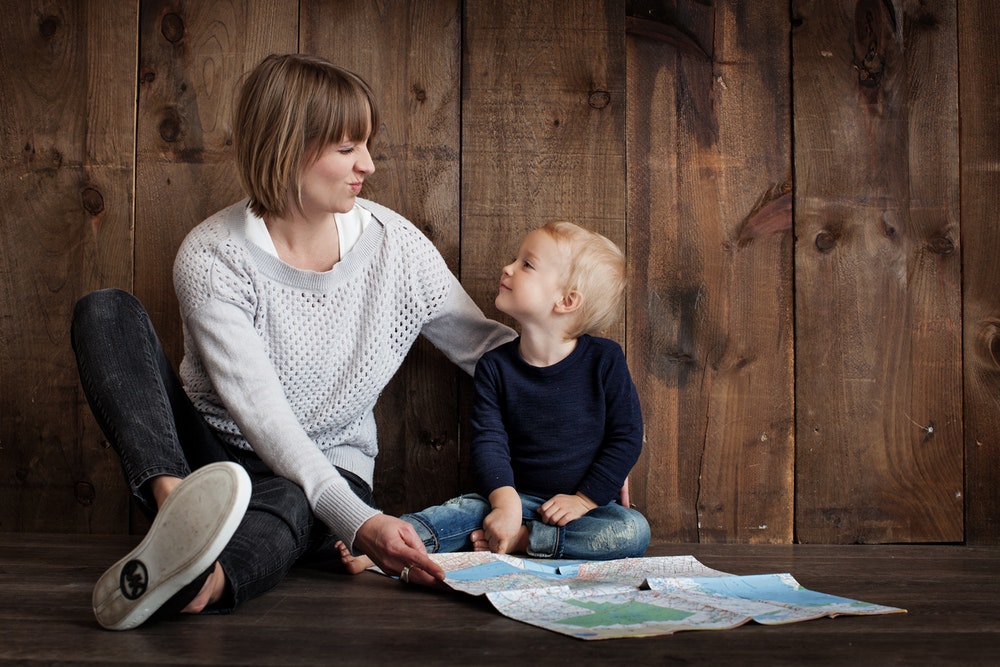Kids can press all your buttons, can’t they? From tantrums to fighting to a refusal to eat anything except chips, these little guys can be tricky! How to be more patient with kids is surely at the forefront of most parents’ minds – after all, modelling good behaviour is how to encourage good behaviour from your offspring.
How To Be More Patient With Kids?

We all know what it’s like – you start every day determined to be a good, patient, caring parent – then by 10am you’re snapping and tearing your hair out!
This is a common problem, with a lot of solutions so you don’t end up taking your own frustration out on your kids.
- Find your “village”. Human beings are social creatures, and we can’t function if we are totally alone. Enlisting a bit of help, even if it’s just an afternoon coffee and a whinge with a friend, will help immensely.
- Keep your own cup full. No one is at their best when their own needs aren’t being met, so ensure that you are sleeping and eating well, and making time for yourself if possible.
- Set yourself goals. Becoming a more patient parent doesn’t happen overnight, and there may be some setbacks – but as long as you’re trying, you’re winning!
- Listen to your child. Getting down to their level, making eye contact and making sure that you are really hearing them is key to becoming a more patient parent.
- Try redirecting. If your child is pushing all your buttons and you feel yourself getting angry, try completely changing the activity to reset both yourself and your child.
- Work out your triggers. If you can figure out what is making you lose your patience, you will be a few more steps on the road to becoming more patient.
It won’t happen overnight, but learning how to be more patient with your children will help your relationship with them no end.
How Do I Stop Losing Patience With My Child?
It’s hard to be patient all the time, but if you find you are snapping more than you would like then try a few of these tips:
- This is a really simple step, but it can reset you for long enough to regain your patience. Try 5 or 10 deep breaths in and out before you react.
- Take 5 minutes. It’s fine to leave the room for a few minutes, as long as your child is safe – this should give you long enough to calm yourself before you step back into the situation.
- Be aware of your triggers. Knowing what pushes your buttons is a great way to stay calmer – and the more you are aware of it the more you can do something about it.
- Fill your cup. Making sure your needs are met is a great way to keep your patience – after all, none of us can function if we are not getting enough rest, for example!
- Seek help. If you find you are simply not able to control your temper, there is no shame in seeking professional help.
What Yelling Does To A Child
Yelling at our kids, although every single parent is guilty of this at one time or another, is actually a very detrimental thing to do.
Once in a blue moon, or when you suddenly shriek because you can see your child getting into danger is one thing. Constant, direct yelling can cause real issues.
Long term effects like low self esteem can result from consistent yelling, which can spill over into later life and cause issues.
Anxiety is another direct result of yelling at your kids; it can leave them feeling insecure and unsafe.
Yelling at your kids can also make them more aggressive in later life, as they try to deal with what they are being subjected to.
If you yell at your kids and feel bad about it, chances are you are inadvertently helping the cycle continue.
If people are used to be yelled at, they think it is normal, and will do the same to their own kids. If you don’t want your grandchildren to be yelled at, don’t yell at your kids!
How Do You Stay Calm With Kids?
It can be really tricky to keep your cool when your kids are running wild – but in fact staying calm and being their guide is the best thing that you can do.
- Allow their feelings. If you realise – and show your children – that it is OK to feel all different kinds of emotions, you will all get on better.
- Offer solutions. Instead of just deciding what should be done to calm a situation, allow your child a choice – this will help them feel more in control – and their choices might just surprise you!
- Always be prepared. We know that life can often throw curve balls, but if you make sure you are ready for all eventualities then you will feel calmer and more in control.
- Connect with your kids. They may be acting out at bedtime, or refusing to get dressed for school, but often this is a cry for more of your undivided attention.
- Remember that, as hard as it is for you to bring up a child, it is just as hard for them! They don’t know how to process their emotions, so it is up to you to help them.
- Make sure you are looking after you. Once you feel like your needs are being met, you will find that calmness around your kids naturally follows.
Staying calm around your kids, as hard as it may be, is ultimately very rewarding, for both you and them.
Final Words
Hopefully you now have a few ideas on how to keep your cool when your children are seemingly determined to make you lose it.
Grown ups losing their patience can be really scary for kids, and it won’t help them to behave better in the future. Learn to be a little more patient, and you will find that your lives improve no end.









